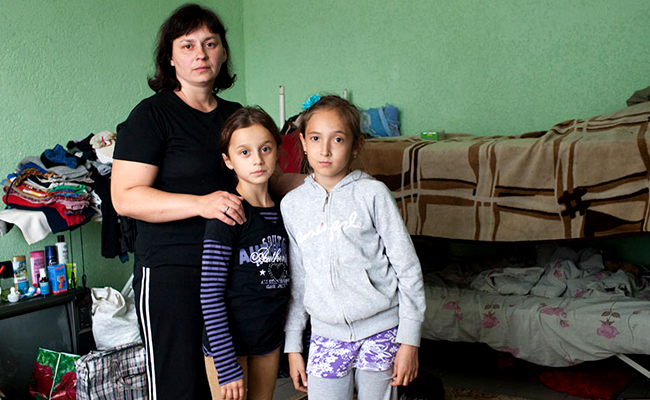Europe’s Duty to Internally Displaced Persons

People are forced to leave their homes for different reasons, ranging from war and violence to natural disasters and climate change. However, this does not always entail the crossing of an internationally recognised border. Even if they do not leave their country, people who flee their homes are still very much in need of protection. This year marks the 20th anniversary of the United Nations Guiding Principles on Internal Displacement, a comprehensive set of international standards addressing the rights of internally displaced persons (IDPs). The anniversary should prompt states to give serious attention to their needs.
At the time of the launch of the UN Guiding Principles, the number of IDPs worldwide stood at 25 million; by the end of 2017, it had increased to about 40 million people[1]. While some progress has been achieved in recognising the magnitude of the issue and in developing appropriate solutions and response mechanisms, many internally displaced persons live in precarious conditions and are among the most vulnerable people, including in our own continent of Europe.
The population of IDPs worldwide is nearly double the population of refugees. However, the situation of IDPs has somewhat slipped off international agendas as attention was mainly focused on the situation of migrants, asylum-seekers and refugees who have left their countries. In order to address this, on 17 April 2018, a multi-stakeholder Plan of Action for Advancing Prevention, Protection and Solutions for Internally Displaced People was launched, following a collaborative process involving the UN Special Rapporteur on the Human Rights of IDPs, UNHCR, OCHA, governments and NGOs. The Plan focuses on the following four priority areas for the next three years: participation of IDPs; national laws and policies on internal displacement; data and analysis on internal displacement; and addressing protracted displacement and supporting durable solutions.
Read more: European Commissioner for Human Rights, https://is.gd/BbI35O





